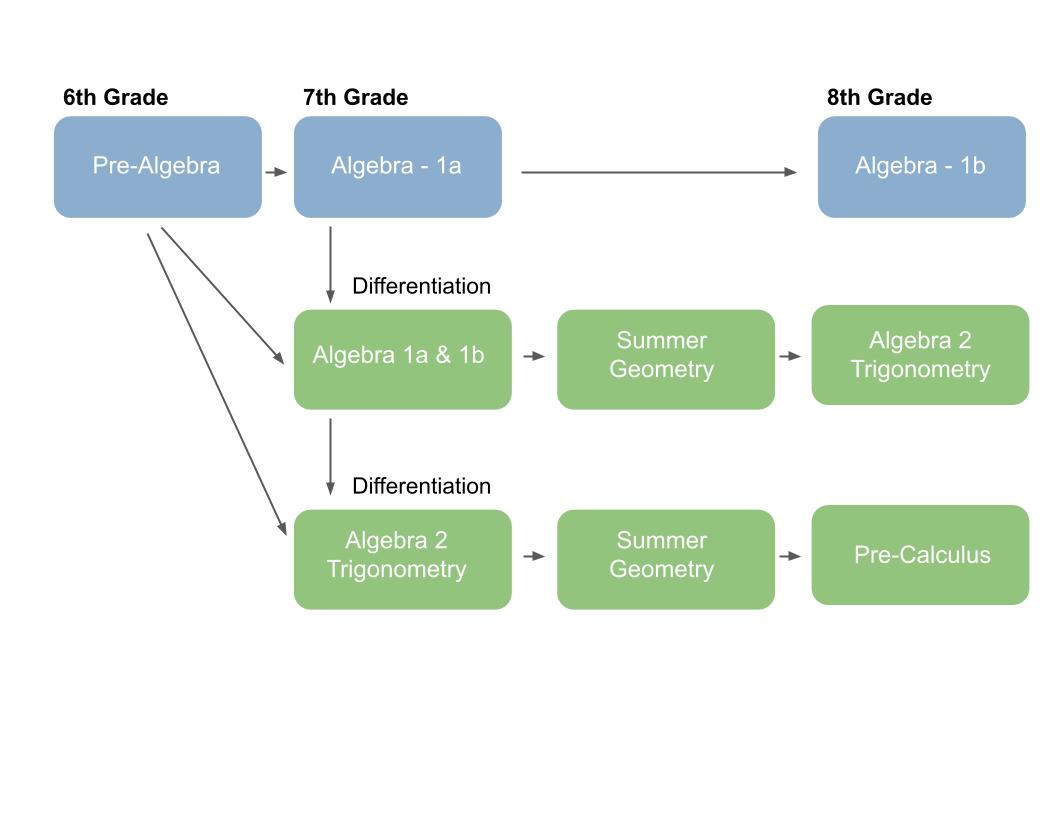Program Goals
In all Odyssey math courses, students will develop both their mathematical thinking and skill through application of the following practices:
- Making sense of problems and persevere in solving them
- Reasoning abstractly and quantitatively
- Constructing viable arguments and critiquing the reasoning of others
- Modeling with mathematics
- Using appropriate tools strategically
- Attending to precision
- Looking for and making use of structure
- Looking for and expressing regularity in repeated reasoning

Program Overview
One of the greatest benefits of Odyssey’s small size is revealed in our responsive mathematics curriculum. Our small classes foster informed teacher-student relationships which allow for flexible, targeted content differentiation based on the abilities and needs of each group of students. As such, it is best to consider our program as a whole as it progresses at the pace the students demand, not the calendar.
Many students will progress along the traditional timeline, shown here in blue. When the teacher has developed a clear understanding of the student’s capacity, they may move to the accelerated path shown here in green.

Program Content:
Pre-Algebra: Covers Number Theory, Alternative Base Systems, Integers, Factoring, Rational Numbers, Percentages, Irrational Numbers, Square Roots, Proofs, Geometry, Solving Simple Algebraic Expressions, Graphing Linear Equations. There is a particular emphasis on logical reasoning, careful exposition, and showing your work.
Algebra 1a: (First half of high school level Algebra 1) Covers Equation Solving, Word Problems, Polynomials, Factoring Polynomials, and Rational Polynomials. There is a particular emphasis on Word Problems.
Algebra 1b: (Second half of high school level Algebra 1) Covers Polynomials, Functions, Systems of Equations, and Quadratic Equations. There is a particular emphasis on Graphing and applications to Word Problems.
Algebra 2/Trig: Covers Functions, Factoring Polynomials, Rational Expressions, Irrational and Complex Numbers, Quadratics, Analytical Geometry, Exponential and Logarithmic Functions, Sequences and Series, Trigonometry. There is a particular emphasis on Trigonometry and Graphing.
Pre-Calculus: Covers Quadratics, Functions, Exponentials, Logarithms, Transforming Functions, Sequences and Series, Trigonometric Functions, Trigonometric Equations and Identities, Introduction to Differentiation. There is a particular emphasis on Transcendental Functions.
